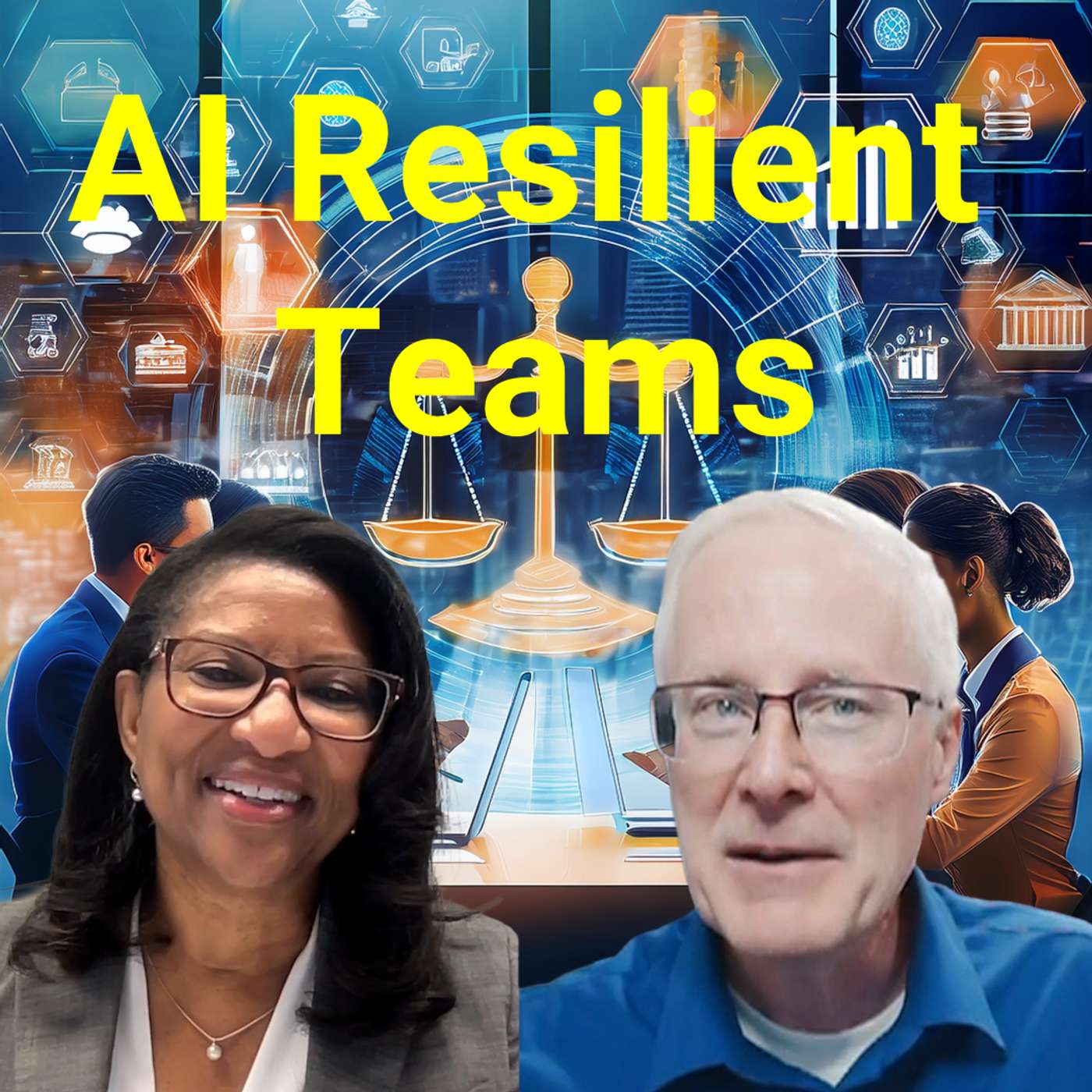#289 Generative AI & Resilient Teams: Thriving in Uncertain Times
- Author
- Dr. Darren Pulsipher
- Published
- Thu 04 Sep 2025
- Episode Link
- https://share.transistor.fm/s/39be774f
In this engaging episode, host Dr. Darren welcomes Laura Clayton McDonald, President of Thomson Reuters, to explore the future of teams in a world increasingly shaped by generative AI. Laura shares her origin story, highlighting how her parents' pioneering spirit inspired her path. The conversation delves into the uncertainties facing organizations today, as leaders grapple with the impact of AI on work dynamics and team effectiveness. Laura emphasizes the necessity of fostering resilient teams that thrive amid chaos and lays out actionable steps for executives to engage their employees through change management. Tune in to discover how to navigate the evolving landscape of technology while maintaining a focus on purpose and collaboration. ## Takeaways - Building a resilient team is crucial for adapting to the rapid changes introduced by generative AI. - Engaging employees in the decision-making processes creates a sense of ownership and eases fears of job displacement. - A clearly defined purpose and a "rallying cry" can unify teams during times of uncertainty. - Using generative AI should enhance productivity rather than replace the human elements critical to effective teamwork. - Executives should foster an environment where employees can experiment with AI tools and see their benefits firsthand. ## Chapters - 00:00 - Introduction and Guest Introduction - 02:30 - Laura's Origin Story: The Pioneering Spirit - 05:40 - Uncertainty in the Workplace: The Role of AI - 08:15 - Lessons from the Pandemic on Resilience - 12:45 - Creating Effective Teams: The Importance of Vision - 15:50 - Embracing Generative AI: Overcoming Fear - 19:30 - Practical Tips for Executives to Engage Employees - 23:00 - The Role of AI in Law and Professional Growth - 27:45 - The Need for Generative AI Policies
In the ever-shifting landscape of technology and business, one thing remains constant: the need to adapt and evolve. As generative AI continues to revolutionize industries and redefine roles, the way we approach teamwork and organizational health comes into sharp focus. The current dynamic raises pressing questions for leaders about how to effectively build and lead teams in a world increasingly influenced by artificial intelligence.
Understanding the Impact of Generative AI
Generative AI is more than just a buzzword; it's a transformative force impacting productivity and team dynamics. Many organizations are pausing, hesitant to dive into the AI wave out of fear that it might replace human roles. However, rather than thinking of it as a job eliminator, leaders should view it as a tool for enhancement. By leveraging AI, businesses can free up valuable time, allowing employees to focus on higher-value tasks. This new reality will enable teams to reimagine their roles, moving away from routine tasks and toward strategic initiatives that drive growth.
The rational use of generative AI can scaffold a culture of innovation. For instance, teams equipped with AI tools can analyze large datasets, generate insights quickly, and automate repetitive tasks, ultimately improving decision-making processes. Leaders must ask: how can these advancements be utilized to foster collaboration and creativity in their teams? Emphasizing this framework not only prepares teams for future challenges but also gives them a sense of purpose—an essential ingredient for resilience.
Building Teams with a Purpose
As effective collaboration becomes increasingly vital, teams must be anchored by a clear understanding of their purpose. This clarity enables teams to navigate challenges, maintain morale, and remain productive amidst uncertainty. The push for organizations to return to "normal" office settings belies a greater need: establishing a purpose-driven environment where employees feel engaged and valued, whether on-site or remote.
To cultivate this atmosphere, organizations can encourage open discussions about their missions and how individual roles contribute to the larger goal. Participative decision-making can facilitate a stronger connection to the company's vision, as employees feel empowered to contribute their ideas. Moreover, nurturing a culture around shared values can compel team members to support one another in both success and adversity. Leaders can ask themselves how they can reinforce their team's purpose daily, fostering a unity that helps overcome societal, technological, and organizational barriers.
Fostering Continued Learning and Adaptability
With the rapid advancement of technology, the need for continuous learning has never been more critical. Generative AI presents an opportunity for employees to enhance their skill sets while simultaneously fortifying their roles within organizations. Instead of fearing a decline in job security as AI becomes integrated into professional workflows, organizations can take proactive steps to ensure employees are equipped with the knowledge to engage with AI and maximize its value effectively.
Take, for instance, companies that are developing comprehensive training programs to guide employees through the process of AI integration. Workshops, hands-on training sessions, and collaborative projects can provide employees with the necessary skills to not only survive but thrive in an AI-driven world. By promoting a culture of lifelong learning, businesses not only cultivate resilience against technological disruptions but also empower their employees to embrace change as a constant in their professional lives.
Embracing the Future Together
As the landscape of work grows increasingly complex due to generative AI, business leaders are faced with a unique opportunity to reshape their organizations for the better. By centering teams around a shared purpose, adopting AI as a complementary tool rather than a replacement, and instilling a culture of continuous learning, organizations can lead in the new era while fostering a supportive environment for their employees.
The road ahead may be filled with uncertainties, but by prioritizing collaboration and adaptability, organizations have the potential to navigate the waters of change successfully. As we look to the future, let's embrace the challenge of building resilient teams ready to transform in step with technological advancements.
**Ready to transform your approach to AI?** Share your thoughts in the comments below, and let's open up a conversation about how we can navigate the future of work together.
